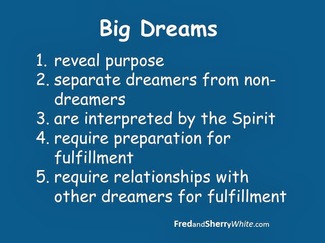1 Naaman, commander of the army of the king of Aram, was a great man and in high favor with his master, because by him the Lord had given victory to Aram. The man, though a mighty warrior, suffered from leprosy. 2 Now the Arameans on one of their raids had taken a young girl captive from the land of Israel, and she served Naaman's wife. 3 She said to her mistress, "If only my lord were with the prophet who is in Samaria! He would cure him of his leprosy." 4 So Naaman went in and told his lord just what the girl from the land of Israel had said. 5 And the king of Aram said, "Go then, and I will send along a letter to the king of Israel." He went, taking with him ten talents of silver, six thousand shekels of gold, and ten sets of garments. 6 He brought the letter to the king of Israel, which read, "When this letter reaches you, know that I have sent to you my servant Naaman, that you may cure him of his leprosy." 7 When the king of Israel read the letter, he tore his clothes and said, "Am I God, to give death or life, that this man sends word to me to cure a man of his leprosy? Just look and see how he is trying to pick a quarrel with me." 8 But when Elisha the man of God heard that the king of Israel had torn his clothes, he sent a message to the king, "Why have you torn your clothes? Let him come to me, that he may learn that there is a prophet in Israel." 9 So Naaman came with his horses and chariots, and halted at the entrance of Elisha's house. 10 Elisha sent a messenger to him, saying, "Go, wash in the Jordan seven times, and your flesh shall be restored and you shall be clean." 11 But Naaman became angry and went away, saying, "I thought that for me he would surely come out, and stand and call on the name of the Lord his God, and would wave his hand over the spot, and cure the leprosy! 12 Are not Abana and Pharpar, the rivers of Damascus, better than all the waters of Israel? Could I not wash in them, and be clean?" He turned and went away in a rage. 13 But his servants approached and said to him, "Father, if the prophet had commanded you to do something difficult, would you not have done it? How much more, when all he said to you was, "Wash, and be clean'?" 14 So he went down and immersed himself seven times in the Jordan, according to the word of the man of God; his flesh was restored like the flesh of a young boy, and he was clean.  It's another nameless woman that has captured my attention this week. There are two of them in this story - Naaman's wife and her servant, a young woman from Israel. She was captured captured when Israel was at war with Aram and now she serves the wife of the commander of the army of Aram. She is an Israelite, which tribe? We don't know. Does she have family still living? Or did they die in the war? We don't know. We have dialogue... She said to her mistress, "If only my lord were with the prophet who is in Samaria! He would cure him of his leprosy." And her words provoke action... "So Naaman went in and told his lord just what the girl from the land of Israel had said." What were the two women doing during this conversation with Naaman's wife? Were they friendly? Was it easy to share her knowledge of the prophet in Samaria? Or was she putting herself at risk by bringing up her homeland? How did she know of the prophet? Had she heard stories? Had she seen miraculous acts? Where did her faith come from? And why was it strong enough to assert when she had lost so much? What fueled or fed her faith? I would ask us those same last questions. Where does our faith come from? Why is it strong enough to assert (or is it) when we have lost things? What fuels or feeds our faith? Faith is listed as a fruit of the Spirit in Galatians. A fruit of the Spirit that is living and active within us, around us and through us. The Spirit lives within us and produces fruit - one of which is faith. The Spirit produces other fruit too - love, peace, patience, gentleness, goodness, meekness, self-control. Some of those gifts are produced regularly from the Spirit growing within me and others are less "hearty." When is faith the strong crop in our lives? Under what circumstances is faith a hearty fruit of the Spirit? I believe this young servant woman has something to tell us about that.
3 Comments
4 The king went to Gibeon to sacrifice there, for that was the principal high place; Solomon used to offer a thousand burnt offerings on that altar. 5 At Gibeon the Lord appeared to Solomon in a dream by night; and God said, "Ask what I should give you." 6 And Solomon said, "You have shown great and steadfast love to your servant my father David, because he walked before you in faithfulness, in righteousness, and in uprightness of heart toward you; and you have kept for him this great and steadfast love, and have given him a son to sit on his throne today. 7 And now, O Lord my God, you have made your servant king in place of my father David, although I am only a little child; I do not know how to go out or come in. 8 And your servant is in the midst of the people whom you have chosen, a great people, so numerous they cannot be numbered or counted. 9 Give your servant therefore an understanding mind to govern your people, able to discern between good and evil; for who can govern this your great people?" 10 It pleased the Lord that Solomon had asked this. 11 God said to him, "Because you have asked this, and have not asked for yourself long life or riches, or for the life of your enemies, but have asked for yourself understanding to discern what is right, 12 I now do according to your word. Indeed I give you a wise and discerning mind; no one like you has been before you and no one like you shall arise after you. 13 I give you also what you have not asked, both riches and honor all your life; no other king shall compare with you. 14 If you will walk in my ways, keeping my statutes and my commandments, as your father David walked, then I will lengthen your life." 15 Then Solomon awoke; it had been a dream. He came to Jerusalem where he stood before the ark of the covenant of the Lord. He offered up burnt offerings and offerings of well-being, and provided a feast for all his servants. 16 Later, two women who were prostitutes came to the king and stood before him. 17 The one woman said, "Please, my lord, this woman and I live in the same house; and I gave birth while she was in the house. 18 Then on the third day after I gave birth, this woman also gave birth. We were together; there was no one else with us in the house, only the two of us were in the house. 19 Then this woman's son died in the night, because she lay on him. 20 She got up in the middle of the night and took my son from beside me while your servant slept. She laid him at her breast, and laid her dead son at my breast. 21 When I rose in the morning to nurse my son, I saw that he was dead; but when I looked at him closely in the morning, clearly it was not the son I had borne." 22 But the other woman said, "No, the living son is mine, and the dead son is yours." The first said, "No, the dead son is yours, and the living son is mine." So they argued before the king. 23 Then the king said, "The one says, "This is my son that is alive, and your son is dead'; while the other says, "Not so! Your son is dead, and my son is the living one.' " 24 So the king said, "Bring me a sword," and they brought a sword before the king. 25 The king said, "Divide the living boy in two; then give half to the one, and half to the other." 26 But the woman whose son was alive said to the king—because compassion for her son burned within her—"Please, my lord, give her the living boy; certainly do not kill him!" The other said, "It shall be neither mine nor yours; divide it." 27 Then the king responded: "Give the first woman the living boy; do not kill him. She is his mother." 28 All Israel heard of the judgment that the king had rendered; and they stood in awe of the king, because they perceived that the wisdom of God was in him, to execute justice.  Solomon had a dream. Solomon had a dream that he would have an understanding mind. Solomon had a dream that he would have the ability to discern between good and evil. Solomon had a dream that his dreams were pleasing to God and therefore God blessed Solomon with riches and honor. Solomon had a dream that God would lengthen his life if he followed God's ways and follow God's statues and commandments. Solomon had a dream. What's your dream? Of course when I first read the text this time, I laughed at the line that says, "Solomon awoke, it had been a dream." As if the text is teasing us... it was only a dream. The dream is tested with this scene of the two mothers and two babies, one dead and one living. Mothers have dreams too. These dreams can be seen when their children are giggling on the playground. These dreams can be seen when their children are learning to read or write or make friends or face adversity or learn to love. Mothers have dreams too. And Solomon's wisdom sought to find the mother who wishes the child to remain whole, safe, living. This first test foreshadows the largest issue of Solomon's reign - the dividing of the kingdom of Israel. How does Solomon's wisdom fair with this task? Which mother, or ruler, or nurturer, or leader wishes the child to remain whole, safe and living. Solomon has been dream that he would have an understanding mind and be able to discern between good and evil. Mothers have dreams. Kingdoms have dreams. Churches have dreams. And long ago Israel had a dream. His name was Jacob at the time. He dreamed that there was a portal between heaven and earth. He dreamed angels moved back and forth between the realms of God's world. It's been a long time since Israel had that dream. Israel has moved to Egypt and then been delivered from Egypt. Israel has wandered in the desert. Israel has fought for the promised land. Israel has built homes and gardens and schools and places of worship in this promised land. Israel has formed a monarchy. Israel has come a long way since the dream of the portal between heaven and earth. Solomon has inherited this dream of Israel, along with promises made to Noah and Abram. Solomon had inherited the wandering and the fighting for the promised land. Solomon has inherited the monarchy. The young Solomon lives far away from Israel's dream the angels moving back and forth between the realms of God's world. And yet his dream is similar in its meaning - Dear God, give me an understanding mind to govern. Help me to discern between good and evil. Dear God, create in me a portal between heaven and earth that I might understand, that I might discern between good and evil. Solomon had a dream. Mothers have dreams. Israel had a dream. Kingdoms have dreams. Churches have dreams. What's your dream? Then Joshua gathered all the tribes of Israel to Shechem, and summoned the elders, the heads, the judges, and the officers of Israel; and they presented themselves before God. And Joshua said to all the people, ‘Thus says the Lord, the God of Israel: Long ago your ancestors—Terah and his sons Abraham and Nahor—lived beyond the Euphrates and served other gods. Then I took your father Abraham from beyond the River and led him through all the land of Canaan and made his offspring many. I gave him Isaac; and to Isaac I gave Jacob and Esau. I gave Esau the hill country of Seir to possess, but Jacob and his children went down to Egypt. Then I sent Moses and Aaron, and I plagued Egypt with what I did in its midst; and afterwards I brought you out. When I brought your ancestors out of Egypt, you came to the sea; and the Egyptians pursued your ancestors with chariots and horsemen to the Red Sea. When they cried out to the Lord, he put darkness between you and the Egyptians, and made the sea come upon them and cover them; and your eyes saw what I did to Egypt. Afterwards you lived in the wilderness for a long time. Then I brought you to the land of the Amorites, who lived on the other side of the Jordan; they fought with you, and I handed them over to you, and you took possession of their land, and I destroyed them before you. Then King Balak, son of Zippor of Moab, set out to fight against Israel. He sent and invited Balaam son of Beor to curse you, but I would not listen to Balaam; therefore he blessed you; so I rescued you out of his hand. When you went over the Jordan and came to Jericho, the citizens of Jericho fought against you, and also the Amorites, the Perizzites, the Canaanites, the Hittites, the Girgashites, the Hivites, and the Jebusites; and I handed them over to you. I sent the hornet ahead of you, which drove out before you the two kings of the Amorites; it was not by your sword or by your bow. I gave you a land on which you had not laboured, and towns that you had not built, and you live in them; you eat the fruit of vineyards and olive groves that you did not plant. ‘Now therefore revere the Lord, and serve him in sincerity and in faithfulness; put away the gods that your ancestors served beyond the River and in Egypt, and serve the Lord. Now if you are unwilling to serve the Lord, choose this day whom you will serve, whether the gods your ancestors served in the region beyond the River or the gods of the Amorites in whose land you are living; but as for me and my household, we will serve the Lord.’  I preached my first sermon at a Sunday night college ministry at an Assembly of God church. My mentor at the time was the college pastor. He offered a variety of hints and suggestions I'm sure but one has always stuck with me - When you're preaching, he said, answer the question that the smartest person in the room is asking. I remembered his hint this week because I'm stuck with a question from the text that may be the "question the smartest person in the room is asking." (I don't know if I like that distinction because it claims that I know what someone else is thinking and it assumes that I am so smart that I'm assuming what the smart people are thinking. Anyway....) The question: Of the wealth in our lives, where is privilege and what role has God played in it? God says to the people in the text, "I gave you a land on which you had not laboured, and towns that you had not built, and you live in them; you eat the fruit of vineyards and olive groves that you did not plant." It's true - in my professional life, I am receiving the benefits of the hard work of others who have followed God before me in faithfulness and generosity. It's true - in my personal life, I am experiencing the reward of my parent's hard earned money that put me through college, the confidence of colleagues and the constant presence of the Holy Spirit who has sustained me. It's true - I am "eating the fruit" that I did not plant. But it's also true - that we, through the work of the Spirit, are planting fruit faithfully. Can we honestly say that none of the "fruit" we are eating is a result of our hands? None of it? My understanding of privilege tells me that the very fact that I am able to deal in fruit at all, planting, reaping, harvesting, saving seeds and replanting, imagining new vineyards, selling and buying product is a result of privilege. The jobs we have landed, the money in our bank accounts, the food in our refrigerators, the stuff in our closets - the natural result of something having been planted in our lives. But... But... it's also true that we manage that which is cultivated in our lives. We are responsible for tending that which has been planted within us. We have been faithful at the jobs we have landed. We have saved when we could have spent. We have shopped righteously. What is the result of privilege and what is the result of hard work? And what -- honestly, what is the role God has played in our wealth? This is where I can feel the passion of Joshua as he admonishes the people, "Choose who you will serve." When Joshua looks back at the work of his hands, at the courage to take the land, at the destruction of Jericho, as the people changed from wanderers to settlers, Joshua clearly saw the work of the God. Joshua had a long view of history and he must've known that it is so often our propensity as humans to have the short view. We see the here and now, the meal to come and the meal that has just gone. We see the people in our lives today and the news stories that just hit the headlines. The long view and the short view tell different tales and they call for different choices it seems as well. |
Search this blog for a specific text or story:
I am grateful for
|

This work is licensed under a Creative Commons Attribution-NonCommercial-ShareAlike 3.0 Unported License.
